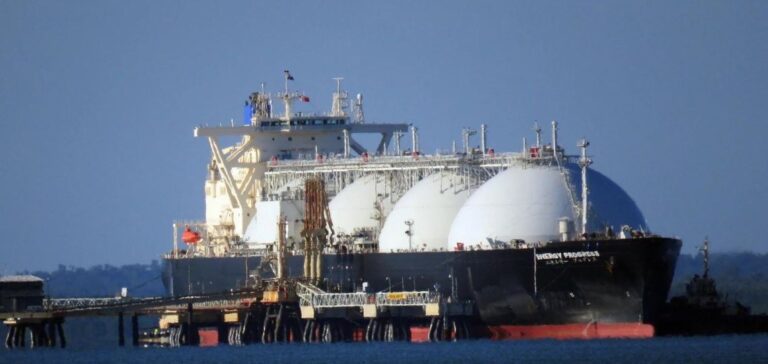Spain’s Energy Minister Teresa Ribera said in an interview with Reuters on Tuesday that European Union(EU) countries are likely to consider banning the import of liquefied natural gas(LNG) from Russia.
Ribera calls for a ban on Russian LNG in the EU to strengthen policy coherence
Ribera expressed confidence that this decision will be taken in the near future, emphasizing the political will of the EU to act. The move to restrict Russian LNG imports follows a ban on Russian crude oil and petroleum products, as well as a significant reduction in the flow of Russian gas through pipelines, all in an effort to decrease Russia’s energy export revenues.
In March, EU member states agreed to explore legal avenues to prevent Russian companies from supplying LNG to the bloc. Ribera reinforced this position by sending a letter to LNG importers and major operators in Spain, urging them not to enter into new contracts for the purchase of Russian LNG once their existing agreements expire. This call is in line with a similar request made by the European Commissioner for Energy, Kadri Simson.
Ribera stressed the importance of consistency, saying, “If we want to be consistent, we have to say we will not accept any more Russian LNG.” She was also optimistic that this decision would evolve over time, predicting that it would become more and more evident.
Spain leads the way: an example of the EU’s determination to reduce its dependence on Russia
According to Ribera, all the companies contacted have committed to refrain from signing new contracts with Russian suppliers. This approach to LNG importers is part of Spain’s broader efforts to combat the import of Russian energy products. The Spanish government has already tightened controls on import documents and investigated allegations of Russian diesel entering Europe through third countries.
So far, no evidence has been found to support these allegations, Ribera acknowledged. Aware of the difficulties in tracing the origin of energy products, Ribera advocated for the establishment of a certification system by the European Commission to track Russian imports and ensure compliance with sanctions.
While supporting measures against the resale of Russian oil in Europe, Ribera expressed reservations about EU foreign policy chief Josep Borrell’s proposal to crack down on refined fuel exports from India to Europe, including diesel. It questioned the feasibility and fairness of implementing measures against exports from any country where such operations are suspected.
As the EU intensifies its efforts to reduce its dependence on Russian energy, the possible ban on Russian LNG imports represents an important step towards achieving this goal. The consistency and commitment shown by member states, such as Spain, in questioning Russia’s energy export revenues is a testament to the EU’s determination to diversify its energy sources and ensure its energy security.






















